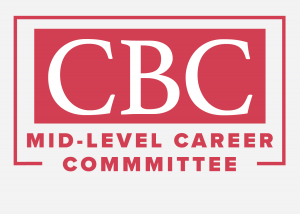ROOM TO GROW: INSIGHTS INTO PUBLISHING CAREER ADVANCEMENT – Nick Magliato

Sponsored by the CBC Mid-Level Career Committee, this new series takes a look at the myriad paths to advancement within children’s book publishing. This week, we hear from Nick Magliato, Senior Editor at Penguin Workshop.
What advice do you have for people who are in their mid-level careers looking to advance?
Network, both within and outside of publishing. You never know who might be able to make a meaningful connection for you down the line.
How did you enter into publishing as a career?
I had been teaching college-level writing as an adjunct at CCNY for four years and was beginning to apply to Ph.D. programs so I could teach full-time. I was also working as a bartender to supplement my meager adjunct income. One night, behind the bar, I served and met an independent book publisher. We got to talking and kept in touch. A few weeks later, I emailed him asking if I could help out on some books as a freelancer. He hired me to create an index for a book that needed to go to press ASAP. I spent the weekend reading the book and creating the index, and delivered it on Monday. A few weeks later, I decided to put my teaching career on hold and began working for his publishing company full-time. It was a small press where I was able to learn about the publishing industry from more than just the editorial perspective. We published mostly political non-fiction on very accelerated schedules, so I learned to work quickly. A few years later, I met another publisher – this time in children’s publishing. We got to talking, and a few weeks later, I emailed him. Again, I decided to make a career pivot and enter the world of children’s publishing, which I knew very little about. I was, of course, nervous but also excited for a new challenge. It’s one of the best decisions I’ve made in my career so far.
How did you develop your skills in management and leadership during your career?
I’ve always aimed to be a manager who could be a resource for my fellow employees. Someone who people felt comfortable asking questions, knowing they could get a reliable answer (or at least some direction as to how to find the answer). I try to always be available to employees for anything they need help with, no matter how big or small, free of judgment. I remind newer employees that I learn something new every day in publishing (and that’s true!). And for any employee—but especially during on-boarding—I try to explain the why behind the things we do and how whatever task we are doing is part of a larger process. I’ve found this helps employees more fully understand the work beyond their immediate scope that goes into making a book.
What is the most important thing you learned from a mentor or leader?
“You can’t make good deals with bad people.” This advice came to me when I was a young editor. Of course, the advice is rooted primarily in negotiations, but over the years, I’ve begun thinking about it a bit more broadly, about making books (or anything creative) with people. It’s hard enough to make a good book with all the right conditions. But making a book where the working relationship between editor/author/illustrator/agent or any combination isn’t quite right, more often than not, you’ll end up with a lesser book. I’ve really come to value working with creative professionals who I work well with. A good working relationship can create a very good—if not great—book.
More about the CBC Mid-Level Career Committee.

